Forum Participants
 Stanford Legal Design Lab
Stanford Legal Design Lab
Stanford, California
USA
Bio:
Nóra Al Haider is the Assistant Director of the Stanford Legal Design Lab. Nóra is a multilingual lawyer and interdisciplinary researcher from the Netherlands. She combines the fields of law, design and tech to increase access to justice and equity in the legal system. Her pioneering and innovative creations from social media bots that provide legal advice to analyzing the legal needs of users on online platforms earned her international acclaim in the legal field. Nóra’s legal design projects and interactive art installations have been spotlighted at courts, bar associations, legal organizations and in law schools around the world. She is driven by merging various disciplines, processes, and methodologies to enact systemic change in the justice system. Nóra holds a Bachelor (honours) and Research Master in Law from Utrecht University.
Presentation:
Access to Online Legal Information: Beyond Generic Content
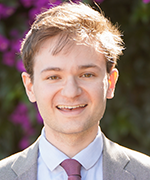 Stanford Law School
Stanford Law School
Stanford, California
USA
Bio:
Graham Ambrose is a third-year student at Stanford Law School and a Civil Justice Fellow at the Rhode Center on the Legal Profession. Before law school he worked as a journalist in the Midwest and South. He graduated from Yale University with a degree in history.
Presentation:
Consumer Harm and Legal Services Reform
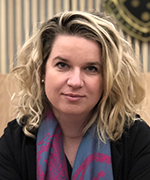 Faculty of Law, Monash University
Faculty of Law, Monash University
Melbourne, Victoria
Australia
Bio:
Natalia Antolak-Saper is a Senior Lecturer in the Faculty of Law, Monash University. Natalia graduated from Monash University with a Bachelor of Arts, majoring in Criminology, and a Bachelor of Laws with First Class Honours. She completed her professional training with Lander & Rogers Lawyers, and was admitted to practice as a Barrister and Solicitor of the Supreme Court of Victoria and of the High Court of Australia.She teaches criminal law and evidence law in the LLB and JD programs at Monash. Her research areas are in comparative criminal law and procedure with a particular focus on unrepresented accused, access to justice and the provision of holistic services to defendants.
Presentation:
The Use of Non-Lawyers and Technology to Assist Unrepresented Defendants: A Global Perspective
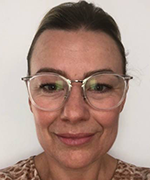 Federation of Community Legal Centres/ Eastern Community Legal Centre
Federation of Community Legal Centres/ Eastern Community Legal Centre
Melbourne, Victoria
Australia
Bio:
Donna Askew is the Director of Partnerships and Community Engagement at Eastern Community Legal Centre. Donna has worked for over decade in the legal assistance and government sectors as a lawyer, educator and project manager. She has a wide-ranging background in legal assistance sector innovation and leadership including establishing a number of multidisciplinary and cross-sector partnership’s in the education, health justice and integrated practice settings, in the design and implementation of evaluation and impact assessment, development of community engagement and awareness raising initiatives. More recently she has overseen ECLC’s primary prevention work, supporting the Centre in addressing legal issues across the prevention continuum.
Presentation:
Strengthening Intake Quality in Legal Assistance
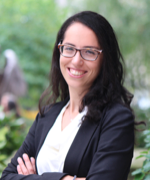 Temple University Beasley School of Law
Temple University Beasley School of Law
Philadelphia, PA
USA
Bio:
Gilat is an Assistant Professor of Law at Temple University Beasley School of Law, where she teaches and researches Torts, Professional Responsibility and Dispute Resolution. She was previously a Visiting Assistant Professor at Villanova Law, a research fellow with the Stanford Center on the Legal Profession, and a Stanford Law School Postgraduate Public Interest Fellow at the Center for Justice & Accountability in San Francisco where she worked on social justice tort litigation. Gilat holds a JSD from Stanford Law School. Prior to coming to Stanford, she clerked for the Israeli Chief Justice, worked as an associate in one of Israel’s leading litigation firms, and earned an LL.B. and an M.B.A. from the Hebrew University of Jerusalem.
Presentation:
Just Tort Settlements
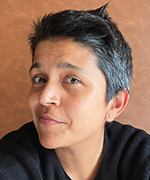 University of California, Irvine School of Law
University of California, Irvine School of Law
Irvine, California
USA
Bio:
Swethaa S. Ballakrishnen (they/them) is a socio-legal scholar whose research examines the intersections between law, globalization and stratification from a critical feminist and global south perspective. Particularly, across a range of sites and different levels of analysis, their work interrogates how law and legal institutions create, continue, and counter different kinds of socio-economic inequalities. Their first book, Accidental Feminism (Princeton University Press: 2021), unpacks the case of unintentional gender parity among India’s elite legal professionals and a second book, Invisible Institutions (Hart Publishing: 2021, ed. with Sara Dezalay), brings together cross-subjective perspectives on legal globalization.
Presentation:
Training, Supporting, and Bolstering Subversive Lawyers and Lawyering
 Victoria Law Foundation
Victoria Law Foundation
Melbourne, Victoria
Australia
Bio:
Nigel is Research Director at the Victoria Law Foundation (Australia), and Honorary Professor of Law and Social Statistics at University College London. He is an empirical legal researcher interested in the application of social science and modern quantitative methods to explore how the public understand and interact with the law. His research investigates the role of law in everyday life; legal capability; attitudes to justice; public experience of and response to legal issues; the interaction between legal and health problems; and design of legal services. He is best known for his work on legal need surveys and will no doubt try and talk to you about his most recent one – The Public Understanding of Law Survey.
Presentation:
Everyday Problems and Legal Need: First Findings from the Public Understanding of Law Survey
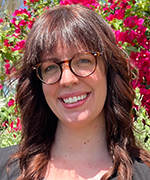 Innovation for Justice (i4J)
Innovation for Justice (i4J)
Tucson, Arizona
USA
Bio:
Cayley Balser is the Community-Engaged Research Operations Lead at Innovation for Justice (i4J). At i4J, she leads regulatory reform design & teaches graduate students how to conduct qualitative research. She is passionate about integrating trauma-informed practices in the community & classroom. Cayley earned her J.D. from the University of Arizona in May 2022, graduating Cum Laude & receiving the Hon. Earl H. Carroll Public Service Award. Cayley holds M.Ed. and Ed.S. degrees in mental health counseling from the University of Florida & is a National Certified Counselor. She earned a B.A. in psychology at Clemson University where she was a scholarship member of the varsity volleyball team & inducted into Phi Beta Kappa.
Presentation:
A Community-Driven Approach to Regulatory Reform
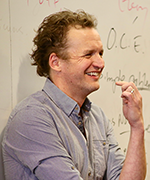 University of Tennessee College of Law
University of Tennessee College of Law
Knoxville, Tennessee
USA
Bio:
Professor Barton is the Helen and Charles Lockett Distinguished Professor of Law and is the author of five books: The Credentialed Court, Fixing Law Schools, Rebooting Justice, Glass Half Full: The Decline and Rebirth of the Legal Profession, and The Lawyer-Judge Bias.
Barton is an expert in Supreme Court Justice backgrounds and access to justice issues. He has worked as an associate at a large law firm, clerked for a federal judge, represented the indigent for 12 years as a clinical law professor, and now teaches torts, contracts, evidence, conflict of laws, and the A2J Lab, an innovative law and coding class.
Presentation:
Training, Supporting, and Bolstering Subversive Lawyers and Lawyering
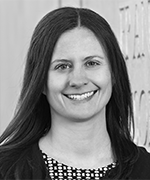 Institute for the Advancement of the American Legal System
Institute for the Advancement of the American Legal System
Denver, Colorado
United States
Bio:
Jessica Bednarz is the Director of Legal Services and the Profession at IAALS. In this role, Jessica is responsible for leading the vision and strategy of IAALS’ work around innovation, regulation, reform, and evolution in the areas of the delivery of legal services and the legal profession more generally. Jessica received her JD and family law certificate, cum laude, from DePaul University College of Law and a BS from the Kelley School of Business at Indiana University. Jessica is originally from Fishers, Indiana. In her free time, she enjoys exploring the outdoors, traveling, and community gardening.
Presentation:
Exploring New Data from IAALS’ Evaluation of Utah’s Regulatory Sandbox
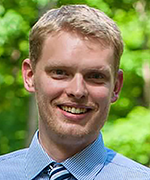 The Pew Charitable Trusts
The Pew Charitable Trusts
Washington, DC
USA
Bio:
Lester Bird manages Pew’s civil legal system modernization project, where he works with state courts and legal organizations throughout the U.S. on reforming how millions of people without a lawyer navigate the civil legal system each year. His focus includes encouraging data-driven reforms of court policy. Bird previously worked on the voting information project at Pew, where he helped voters find their polling place and ballot information. Before joining Pew, he worked in state and local governments in Florida and Washington, D.C.
Presentation:
Taking Debt Cases out of the Shadows
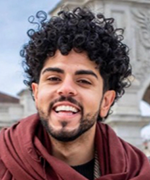 University of California, Irvine
University of California, Irvine
Irvine, California
USA
Bio:
Sayid is a PhD and JD candidate at the University of California, Irvine. He is advised by Mark Fiocco. Before the dual-degree program at Irvine, he received his masters in philosophy from Northern Illinois University and bachelors in philosophy from Berea College. Philosophy-wise, Sayid is interested in the metaphysics and ethics of risk, the epistemology of ignorance, the metaphysics of time, and the philosophy of criminal and tort law. Law-wise, he is interested in litigation practice, jurisprudence, statutory analysis, antitrust law, and the law of equitable remedies, especially interlocutory relief.
Presentation:
Compensatory Preliminary Damages: Access to Justice as Corrective Justice
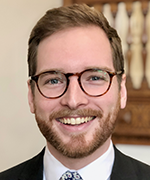 McGill University Faculty of Law
McGill University Faculty of Law
Montreal, Quebec
Canada
Bio:
Jérémy Boulanger-Bonnelly is an assistant professor of law at McGill University (Montreal, Canada), where he researches issues related to access to justice using comparative methods. His current projects explore the role of public participation in improving access to justice, particularly through the use of lay courts. His research interests also extend to other areas of law, including private law, civil procedure, judicial institutions, and constitutional law. In parallel to his research and teaching, he remains involved in several community initiatives, including as a pro bono counsel in constitutional cases and as chair of the Canadian Bar Association’s Access to Justice Subcommittee.
Presentation:
Access to Person-Centred Dispute Resolution: The Potential of Lay Courts
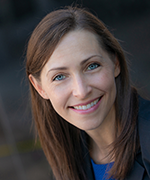 Rhode Center on the Legal Profession, Stanford Law School
Rhode Center on the Legal Profession, Stanford Law School
Stanford, CA
USA
Bio:
Larisa G. Bowman is the Court Innovation Fellow at the Deborah L. Rhode Center on the Legal Profession at Stanford Law School and Project Fellow at the American Law Institute to work on ALI’s newly launched "Principles of the Law, High-Volume Civil Adjudication" project. In addition, she teaches as adjunct faculty at the University of Iowa College of Law, where she previously held a three-year appointment as a visiting associate professor. Prior to joining Iowa Law, Larisa was Deputy Director of the housing unit at a legal services organization in New York City, and before that she supervised students in the housing practices of clinical programs at Harvard Law School and Stanford Law School.
Right-to-Counsel Reformism: An Abolitionist Critique of Civil Gideon in New York City Housing Court
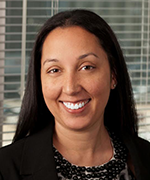 University of Manitoba- Faculty of Law
University of Manitoba- Faculty of Law
Winnipeg, Manitoba
Canada
Bio:
Natasha Brown is the Director of Access to Justice, and a Sessional Instructor, at the University of Manitoba- Faculty of Law (Robson Hall). Prior to assuming her current role, Natasha was the Access to Justice Coordinator at the Law Society of Manitoba and the Director of Professional Practice & Externships at Robson Hall. Natasha received her B.Ed. in 2001 and her LL.B. in 2005. Natasha is an elected council member of the Manitoba Bar Association and a former President of the Association for Canadian Clinical Legal Education (ACCLE). Natasha was awarded the National Lexpert Zenith Award in 2017, Robson Hall's Dean's Award for Teaching Excellence in 2000 and was designated a Jurist of Robson Hall in 2022.
Presentation:
Law Schools and A2J: An Inventive Approach Taken by One Canadian Law School
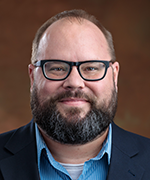 American Bar Foundation
American Bar Foundation
Chicago, Illinois
USA
Bio:
Matthew Burnett, JD is Senior Program Officer for the Access to Justice Research Initiative at the American Bar Foundation (ABF) and visiting scholar for Justice Futures at Arizona State University. Prior to joining the ABF, Matthew was Senior Policy Officer at Open Society Foundations (OSF), where he worked to advance access to justice and legal empowerment through research, advocacy, litigation, and grantmaking in Africa, Asia, Latin America, Eastern Europe, and the United States. Earlier in his career he co-founded and led the Immigration Advocates Network and served as law clerk to Justice ZM Yacoob of the Constitutional Court of South Africa. Matthew’s writing on access to justice and legal empowerment has appeared in more than 20 publications, and he has given more than 80 presentations and workshops around the world. His research has been funded by the National Science Foundation, the World Bank, and the International Development Research Centre. Matthew currently serves as an advisor to the National Center for Access to Justice and is co-founder, with Rebecca Sandefur, of Frontline Justice.
 Office of the Ombudsperson for BC
Office of the Ombudsperson for BC
Victoria, BC
Canada
Bio:
Jay Chalke has been BC’s Ombudsperson since May 2015. In this role, he has led several wide-reaching systemic investigations, including the 2017 report Misfire: The 2012 Ministry of Health Employment Terminations and Related Matters, the most resource-intensive investigation in the 40-year history of the Ombudsperson’s Office in BC. His previous roles include leading the Justice Services Branch of the Ministry of Attorney General; Public Guardian and Trustee of BC; Deputy Public Guardian and Trustee of Ontario; Head of the Review of Certain Practices in New Brunswick Correctional Institutions; and Crown Counsel with the Ontario Ministry of the Attorney General.
A Climate of Fairness
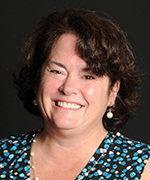 University of South Carolina School of Law
University of South Carolina School of Law
Columbia, South Carolina
United States
Bio:
Elizabeth Chambliss is the Henry Harman Edens Professor of Law and Director of the NMRS Center on Professionalism at the University of South Carolina School of Law. Her scholarship focuses on access to justice and the regulation of the legal profession. Current projects include a study of solo and small firm practice in rural South Carolina and an assessment of civil legal needs and services across the state. Professor Chambliss is a Fellow of the American Bar Foundation and a member of the American Law Institute. She serves on the SC Access to Justice Commission and the Editorial Advisory Board of Law & Society Review. She received her B.S. from the College of Charleston and her J.D. and Ph.D. in sociology from the University of Wisconsin.
Presentation:
Rural Legal Markets
The Pew Charitable Trusts
Washington, DC
United States
Bio:
Casey Chiappetta conducts research on debt and evictions and manages projects related to court openness and modernization. Before joining Pew, they worked as a senior associate at the National Legal Aid & Defender Association, leading research on online dispute resolution and providing technical assistance to civil legal aid organizations about federal funding. She holds a bachelor’s degree in sociology and a master’s in justice, law, and criminology from American University.
Using Data to Push for Modern Courts
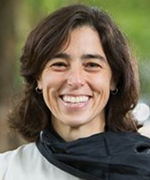 University of Washington School of Law
University of Washington School of Law
Seattle, Washington
USA
Bio:
Christine Cimini is a Professor of Law at the University of Washington School of Law and Director of the Mediation Clinic. Professor Cimini's current research focuses on the role of lawyers in social change. Her articles have been published in a variety of journals including the Stanford Law Review, Vanderbilt Law Review, Maryland Law Review, Rutgers Law Review and Georgetown Journal on Poverty Law and Policy. Professor Cimini has served as Co-Chair of the American Association of Law Schools (AALS), Section on Clinical Legal Education and two terms as a member of the board of directors of the Clinical Legal Education Association.
Presentation:
Can Authentic Lay Lawyering and Democratically Structured Movement Lawyering Improve Civil Access-to-Justice?
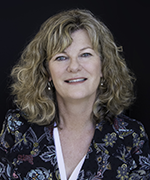 University of Canterbury
University of Canterbury
Christchurch, Canterbury
New Zealand
Bio:
Dr Toni Collins is a Senior Lecturer in the Faculty of Law at the University of Canterbury in New Zealand. She teaches Land Law. Her research interests include disaster law in the context of property law and dispute resolution. Toni is a Solicitor of the High Court of New Zealand and of the Supreme Court of England and Wales having worked in private practice in both countries. After the Canterbury earthquake sequence in 2010/2011 Toni was granted a scholarship to complete her doctorate on issues arising from the disaster. She is the Associate Director of the Law Emergencies and Disaster Institute and an Associate Investigator with QuakeCORE using multi-disciplinary research to improve the resilience of communities to disasters.
Presentation:
From Crisis to Conflict: Access to Justice in a Post-Disaster Dispute Resolution System
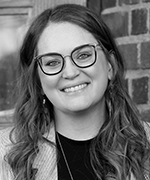 Institute for the Advancement of the American Legal System
Institute for the Advancement of the American Legal System
Denver, Colorado
USA
Bio:
Logan Cornett is the Director of Research at IAALS, the Institute for the Advancement of the American Legal System at the University of Denver. In addition to overseeing IAALS’ empirical work, Cornett leads IAALS’ programmatic work in the area of Legal Education and Licensure. She has more than 15 years of experience as an empirical researcher, with more than a decade of her career dedicated to the study of legal issues in topics such as legal education, diversity in the legal profession, minimum competence for law practice, and access to justice. Cornett has designed, conducted, and published reports for numerous studies and has expertise in research methods, as well as quantitative and qualitative data analysis.
Exploring New Data from IAALS’ Evaluation of Utah’s Regulatory Sandbox
 Legal Link
Legal Link
Oakland, California
USA
Bio:
Kate Crowley Richardson is the Co-Executive Director of Legal Link. Kate is the former Legal Director of a nonprofit that provides holistic, wraparound services to homeless and low-income veterans. She previously worked at Namati, the leading global legal empowerment organization. Prior to law school, Kate spent three years working as an advocate for medical and mental health care for people incarcerated in California state prisons. She has dedicated her legal career to supporting innovative models that work to close the Access to Justice gap for communities experiencing poverty. Kate received her J.D. from Northeastern University School of Law and her B.A. from the University of Michigan. She is a member of the State Bar of California.
Community Navigators on the Frontlines: Using Legal First Aid to Expand Access to Justice
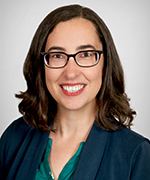 Oklahoma Access to Justice Foundation
Oklahoma Access to Justice Foundation
Tulsa, Oklahoma
USA
Bio:
Katie Dilks is the Executive Director of the Oklahoma Access to Justice Foundation, where she works to collaboratively identify and strengthen statewide solutions ensuring access to civil justice for all Oklahomans. Katie has written and presented on access to justice topics including the need for affordable legal services, pro bono responses to disaster, career pathways in government and nonprofit law, and diversity and compensation trends in legal services. Katie earned her Juris Doctor and Master’s in Public Policy from Georgetown University, and her undergraduate degree in Psychology from the University of Kansas. She is a member of the bar in the District of Columbia.
Presentation:
Community Navigators on the Frontlines: Using Legal First Aid to Expand Access to Justice
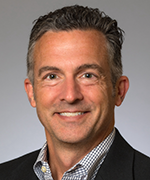 University of California Law, San Francisco
University of California Law, San Francisco
San Francisco, California
USA
Bio:
Professor Scott Dodson is the James Edgar Hervey Chair in Law and the Geoffrey C. Hazard Jr. Distinguished Professor of Law. An expert in civil procedure and federal courts, he has published eight book titles, including The Legacy of Ruth Bader Ginsburg (Cambridge 2015, 2d ed. 2022) and New Pleading in the Twenty-First Century (Oxford 2013). He has written more than 100 shorter works appearing in the flagship law reviews at Stanford, NYU, Michigan, Penn, California, Virginia, Duke, Northwestern, and Georgetown, and in American Journal of Comparative Law, American Journal of International Law, Law & Society Review, and Law & Social Inquiry, among others. His scholarly writings have been cited in more than forty-five court opinions.
Presentation:
Why Do In-State Plaintiffs Invoke Diversity Jurisdiction?
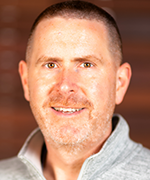 University of Iowa College of Law
University of Iowa College of Law
Iowa City, Iowa
USA
Bio:
Brian Farrell is an Associate Professor of Instruction and Associate Director of the Center for Human Rights at the University of Iowa College of Law. He is the director of Iowa Law’s Citizen Lawyer Program and also serves as an adjunct lecturer in the Irish Centre for Human Rights at the University of Galway. Brian recently completed his second term on the Iowa Supreme Court’s Access to Justice Commission and remains actively engaged is three of the Commission's work groups. He received his JD from the University of Iowa and his LLM and PhD from the National University of Ireland Galway.
Reframing Assessment of Rural Access to Justice: Developing New Measurements of Legal Infrastructure and Need
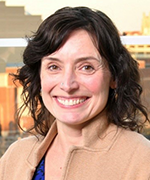 University of Iowa College of Law
University of Iowa College of Law
Iowa City, Iowa
USA
Bio:
Daria Fisher Page is a Clinical Professor of Law at the University of Iowa. She teaches and directs the Community Empowerment Law Project in the legal clinic at Iowa Law. Her students work with clients to strengthen their communities, create economic opportunity, and advance racial justice in the State of Iowa through policy advocacy and transactional matters. Her research and scholarship currently focus on access to, and experiences of, justice; meaningful community engagement; and legal education reform.
Reframing Assessment of Rural Access to Justice: Developing New Measurements of Legal Infrastructure and Need
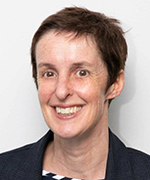 Health Justice Australia
Health Justice Australia
Sydney, NSW
Australia
Bio:
Suzie Forell is Research Director for Health Justice Australia, the national centre of excellence for health justice partnership (HJP). HJPs embed legal help into services that support people’s health and wellbeing.
Suzie has deep expertise in the intersection of legal need, health and disadvantage; and in service innovation to improve access to justice to people and communities. She undertakes collaborative health and justice research, to explore the value of integrating legal help into health care settings to improve client health and wellbeing and practitioner and service capability to address complex need. Suzie is also an Adjunct Associate Professor at UNSW Law, and an hon Professor in the UCL Faculty of Laws.
Presentation:
Legal Need and Capability in Mental Health Settings
 University of California, Santa Cruz
University of California, Santa Cruz
Santa Cruz, California
USA
Bio:
Ellie Frazier is a Ph.D. candidate in Politics at the University of California, Santa Cruz. Her research and teaching focus on comparative politics and legal studies, particularly critical perspectives on access to justice, legal empowerment, and rule of law. Her current project focuses on the history and lived experience of community paralegals in South Africa and their impact on global access to justice movements. Her work has been supported by grants from the National Science Foundation and the Fulbright Commission. She has previously worked with the Supreme Court and paralegal offices in Rwanda and Sierra Leone, respectively, including projects with USAID, Timap for Justice, and Freedom House’s Freedom in the World Index.
Presentation:
Community Paralegals and the Road to Professionalization
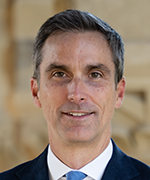 Stanford Law School
Stanford Law School
Stanford, California
USA
Bio:
David Freeman Engstrom is the LSVF Professor in Law at Stanford and Co-Director of the Deborah L. Rhode Center on the Legal Profession. An expert in civil and administrative procedure and law and technology, Engstrom focuses his current work on the millions of small but consequential cases, including debt, eviction, and family matters, that shape Americans’ lives each year. He is the Reporter for the ALI’s Principles of the Law, High-Volume Civil Adjudication, which will offer guidance on these cases. Engstrom is a member of the ALI, an appointee of the Administrative Conference of the United States, and a fellow of the American Bar Foundation. He has a .JD. from Stanford, an M.Sc. from Oxford, and a Ph.D. (political science) from Yale.
Presentation:
Consumer Harm and Legal Services Reform
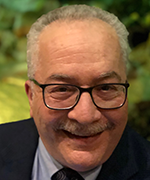 Loyola University Chicago
Loyola University Chicago
Chicago, Illinois
US
Bio:
Jona Goldschmidt is an Emeritus Professor at Loyola University Chicago and Adjunct Professor at Oakton College, Des Plaines, IL. He is the author of Self-Representation: Law, Ethics, and Policy (2022), and numerous articles on self-representation, and legal and judicial ethics. He provides pro bono legal services to pro se litigants in the US District Court (ND Ill), and is president of the Illinois Academy of Criminology.
Do Federal Circuit Courts Provide Assistance to Self-Represented Litigants? A Review of Federal Circuits’ Website Resources
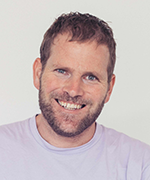
Portable
Melbourne, Victoria
Australia
Bio:
Simon Goodrich is Co-Founder of Portable, a purpose-driven digital design agency with a mission to address social need and policy failure in the community using human-centred design and technology. It delivers technology-based and design-thinking informed solutions and innovation in the form of useful, accessible products and services which place the user experience at their centre. Portable is a team of 75 based around Australia, working across the impact areas of access to justice, mental health and government. Simon has worked with National Legal Aid Australia for the past six years in the design and development of amica.gov.au, the world's leading family seperation tool.
Presentation:
Scaling Impact: How to Best Use Design and Technology to Drive Long Term Change in the A2J Sector
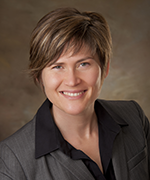 University of Victoria
University of Victoria
Victoria, BC
Canada
Bio:
Kate Gower is the Lab Director for the Justice Data and Design Lab at the University of Victoria, Canada. She works as a lawyer for Aboriginal people, most recently as part of the legal team bringing the Nuchatlaht land title claim before the British Columbia Supreme Court. She is a consummate improver of institutions and processes. She started by bringing court cases using new tools and technologies. Then she sent herself back to graduate school at the University of Victoria to work on the lab which takes an interdisciplinary approach to improving access to justice. Her teams of law and data science students have designed and built a Research Engine that uses cutting edge unsupervised machine learning and AI technologies.
 Fordham Law School
Fordham Law School
New York, New York
United States
Bio:
Bruce Green is the Stein Chair at Fordham Law School, where he directs the Stein Center for Law and Ethics, and he serves on the board of the National Center for Access to Justice (NCAJ). He teaches Professional Responsibility, co-authors a professional responsibility casebook, and writes and speaks extensively on this subject. Additionally, he co-teaches a seminar on Access to Justice with David Udell and Lauren Jones of the NCAJ. Professor Green has also chaired various bar association entities, including the ABA Criminal Justice Section, the ABA Criminal Justice Standards Committee, and, as of August 2023, the ABA Standing Committee on Ethics and Professional Responsibility.
Presentation:
Trial Courts' Role in Expanding Nonlawyers' Role
 Stanford Legal Design Lab
Stanford Legal Design Lab
Stanford, California
USA
Bio:
Margaret Hagan is the Executive Director of the Legal Design Lab at Stanford University, as well as lecturer at the Law School and d.school. She is a lawyer, and holds a J.D. from Stanford Law School, a DPhil from Queen’s University Belfast, an MA from Central European University, and an AB from University of Chicago. She specializes in the application of human-centered design to the legal system, including the development of new public interest technology, legal visuals, and policy design. Her research and teaching focuses on the development and evaluation of new interventions to make the legal system more accessible.
Presentation:
Paths toward Access to Justice At Scale
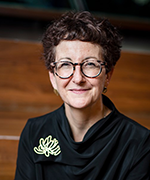 Victoria Law Foundation
Victoria Law Foundation
Melbourne, Victoria
Australia
Bio:
Lynne has been the Executive Director of the Victoria Law Foundation for over 6 years, which works in empirical legal research, education and grant-making. Her first career was in radio working with the Australian Broadcasting Corporation for 16 years across many programs and networks. In between, she held high level roles at the Australian Competition and Consumer Commission, the City of Melbourne, the Victorian Ombudsman and as a consultant. She has degrees in Law and English Literature from the University of Western Australia and holds qualifications from the Australian Institute of Company Directors, the Institute of Community Directors Australia, and is an alumna of the Cranlana Centre for Ethical Leadership.
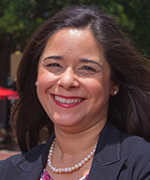 Texas A&M School of Law
Texas A&M School of Law
Fort Worth, Texas
USA
Bio:
Luz E. Herrera is a Professor of Law and Associate Dean for Experiential Education at Texas A&M School of Law. Dean Herrera promotes entrepreneurial efforts to address the access to civil justice gap. Before entering academia, Prof. Herrera ran her own practice and founded Community Lawyers, Inc., a non-profit organization that encourages access to affordable legal services and develops innovative opportunities for legal professionals in underserved communities. These experiences have influenced her scholarship that promotes legal “low bono” service delivery models and post-graduate support programs for lawyers starting their own law firms. Dean Herrera currently serves as a special advisor for the American Bar Association’s Commission on Hispanic Legal Rights and Responsibilities.
Binational Legal Services Networks: The Need to Address Legal Needs of Immigrant Families
 Magistrates Court of Victoria
Magistrates Court of Victoria
Melbourne, Victoria
Australia
Bio:
Richard is a leader in service excellence, with extensive experience in the design, delivery and change practices to support organisations to transform into digitally enabled, user-centre, service providers. An organisational capability enhancement professional with experience in overseeing projects and programs to modernise, recalibrate or accelerate organisational growth to achieve service excellence. Since 2020 Richard has won a state, national and international award for user-centred digital justice service design in the public sector. Richard leads the Magistrates’ Court of Victoria Service Centre which was recognised in June 2023 for its innovation, when it was awarded the Citizen-centred Service Design Award at the Institute of Public Administration Australia’s ‘Leadership in the Public Sector’ awards. The award recognises the MCV Service Centre as “an exemplar of innovation, demonstrable impact and inspirational delivery for the public sector and the Victorian community.”
Presentation:
Transformative Public Servicing Courts Reform (MCV Service Centre)
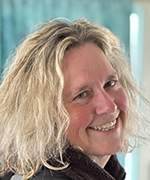 National Self-Represented Litigation Network
National Self-Represented Litigation Network
Sausalito, California
USA
Bio:
Bonnie Rose Hough is a consultant for courts and legal services on access to justice issues. She serves on the Advisory Board of the National Self-Represented Litigation Network. She recently retired as a Principal Managing Attorney for the Judicial Council of California’s Center for Families, Children & the Courts (CFCC). Bonnie was a founder of the Family and Children's Law Center in Marin County and served as its executive director and lead attorney for six years. She has authored and edited a number of articles and a benchguide on handling cases involving self-represented litigants, and has collaborated on in-person and on-line judicial education designed to increase access to justice.
The New Judging: Adapting to Today's Court Users
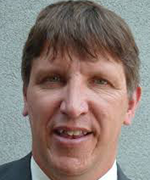 Ontario Tech University
Ontario Tech University
Toronto, Ontario
Canada
Bio:
Les Jacobs is Vice-President, Research & Innovation at Ontario Tech University as well as Professor Emeritus and Research Chair in Human Rights and Access to Justice at York University in Toronto, Canada. He is a Fellow of the Royal Society of Canada. His recent books include Human Rights and Racial Profiling (Irwin Law Books, 2018); (with Trevor Farrow) The Justice Crisis: the cost and value of accessing law (UBC Press, 2020); (with Ilan Vertinsky & Yoshi Wada), Global Health Security in China, Japan & India (UBC Press, 2023); and forthcoming (with Matt McManus) Against Post-Liberal Courts and Justice (Sprenger, January 2024).
Presentation:
The Quality and Value of Legal Information as Service Provision in the Justice System
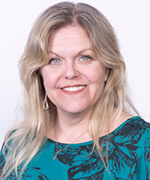 University of Illinois Chicago School of Law
University of Illinois Chicago School of Law
Chicago, Illinois
USA
Bio:
Claire Johnson Raba is an Assistant Professor of Law at the University of Illinois Chicago School of Law, where her grant-funded empirical legal research is focused on the impact of the civil legal system on low-income borrowers and communities. At the intersection of big data, emerging legal technologies, consumer protection, and racial and social justice, her scholarship is directed at substantively improving the experiences of self-represented litigants in state courts. A former legal aid attorney, Claire is a 2023-24 American Bar Foundation Access to Justice scholar and a co-PI at the Debt Collection Lab at Princeton University. She teaches courses on Consumer Law, Access to Justice and Legal Technology, and Civil Procedure.
Presentation:
Beyond Default Judgments: Lessons from California Debt Cases
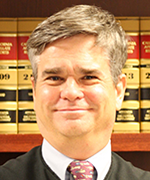 Los Angeles Superior Court
Los Angeles Superior Court
Los Angeles, CA
USA
Bio:
Judge Mark A. Juhas sits in a general family law assignment on the Los Angeles Superior Court. He is the immediate past chair of the California Commission on Access to Justice. For the California Judicial Council, he has been on the CJER Governing Committee and the immediate past Co-chair of the Family and Juvenile Advisory Committee; he was a member of the Elkins Family Law Task Force, Elkins Family Law Implementation Task Force and Self- Represented Litigant Task Force. He recently received a lifetime achievement award from the Family Law Section of the State Bar and a Distinguished Service Award from the Judicial Council.
The New Judging: Adapting to Today's Court Users
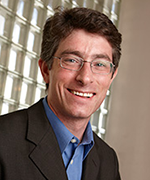 Univeristy of Nevada, Las Vegas, William S. Boyd School of Law
Univeristy of Nevada, Las Vegas, William S. Boyd School of Law
Las Vegas, Nevada
USA
Bio:
Michael Kagan directs the UNLV Immigration Clinic at the University of Nevada, Las Vegas, where he teaches administrative law, professional responsibility and immigration law. Prof. Kagan has played a central role in expanding legal services to immigrants in Nevada. He led the establishment of the UNLV Immigration Clinic’s off-campus Community Advocacy Office in 2022, the first pro bono deportation defense center in Nevada. He is a widely cited immigration law scholar and has published leading works on the intersection of immigration law and civil liberties. He is also the author of an award-winning current events memoir, The Battle to Stay in America (2020).
Presentation:
Law Schools as Legal Service Providers
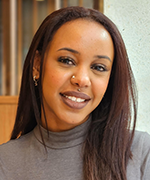 Moonee Valley Legal Service
Moonee Valley Legal Service
Melbourne, Victoria
Australia
Bio:
Esset Kahsay (she/her) is a paralegal and Legal Concierge at Moonee Valley Legal Service. Esset is currently studying a double degree Bachelor of Law/Criminology at Victoria University. She started at the legal service as a volunteer, and is now a reoccurring intern at Gadens, a private commercial pro bono partner of the legal service. Esset is eager to take advantage of opportunities to further develop her legal skills and build her knowledge of both the private and community sectors.
Increasing Access to Justice through a Bicultural Workforce
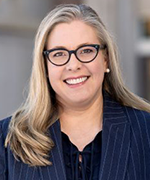 IAALS
IAALS
Denver, Colorado
USA
Bio:
Brittany Kauffman is Chief Executive Officer at IAALS, the Institute for the Advancement of the American Legal System. Kauffman is a leader in justice system reform efforts in the United States, serving as a facilitator, expert liaison, and consultant to state and federal courts, rules committees, civil justice task forces, and bar organizations. She provides legal and empirical research and analysis to assist in the development of recommendations, as well as support for implementation—all toward the goal of making our civil justice system accessible, efficient, and relevant to the people whom it serves. Kauffman also serves on the Legal Services Corporation Rural Justice Task Force and the Colorado Access to Justice Commission.
Black Swans, Gray Rhinos, and Lessons on Access to Justice from the Pandemic
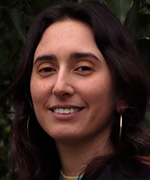 Moonee Valley Legal Service
Moonee Valley Legal Service
Melbourne, Victoria
Australia
Bio:
Katia Lallo (she/her) is the Manager of Moonee Valley Legal Service. Katia’s background as community lawyer and advocate started over a decade ago working with incarcerated young people. She has since worked or volunteered for six different Victorian community legal centres and multiple grassroots groups. Her work is informed by decarceration, harm reduction and grassroots organising, especially in the space of community legal education.
Increasing Access to Justice through a Bicultural Workforce
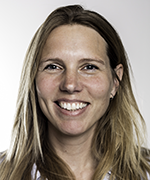 Legal Aid Clinic for Women - Amsterdam Law Hub
Legal Aid Clinic for Women - Amsterdam Law Hub
Amsterdam
The Netherlands
Bio:
Susan Leclercq is a creative and driven professional with a passion for legal innovation and the sustainable development of businesses. Her background includes several years working experience in different roles (researcher, manager, communications) in international NGOs and research institutes on migration affairs/human rights/access to justice. She is working at the Amsterdam law hub (part of the University of Amsterdam) as a project manager of ‘Vrouwenrechtswinkel’ (free legal advice center for women), setting up and improving free legal services for women from migrant or low-income backgrounds, in neighbourhoods characterised by a lack of social or financial investment.
Exchanging Top-down for Bottom-up: A New Approach to Free Legal Advice for Women
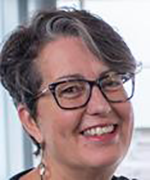 Community Advocacy & Legal Centre/Queen's University
Community Advocacy & Legal Centre/Queen's University
Kingston, Ontario
Canada
Bio:
As ED/Lawyer with Community Advocacy & Legal Centre (CALC), and a PhD candidate, I am keenly interested in how innovative “health justice approaches” help vulnerable communities/individuals access justice, & improve health outcomes/equity. Building the cross-disciplinary capacity to ameliorate social determinants of health, foster healthcare & legal professional collaboration, and improve competency has been inspirational. I oversee implementation of CALC's local justice & health partnerships & promote scaling up this model provincially via a virtual community of practice. I am finalizing a report on the impact of these partnerships in 4 countries after co-authoring a scoping review in 2020 with Queen's University Dept. of Family Meds.
Measuring What Matters: Challenges and Opportunities When Working across Disciplines to Increase Access to Justice through Health & Justice Approaches
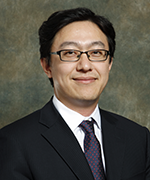 University of California, Irvine School of Law
University of California, Irvine School of Law
Irvine, California
USA
Bio:
Professor Li joined UCI Law in July 2019 as the John S. and Marilyn Long Professor of U.S.-China Business and Law. He received a Ph.D. in political science from Northwestern University and a J.D. from Yale Law School where he was an Olin Fellow in Law, Economics and Public Policy. Professor Li’s teaching and scholarship explores a broad range of topics including Chinese law and politics, empirical legal studies, China and international law, Chinese immigrants and immigrant lawyers in the US, and interactions between Chinese transnational actors and their institutional environment.
Race, Gender, Class, or Judicial Fairness What Matters at the Entry Point of the U.S. Legal Service Market?
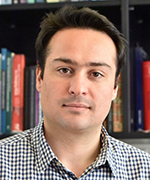 Universidad Adolfo Ibañez
Universidad Adolfo Ibañez
Santiago, Region Metropolitana
Chile
Bio:
Doctor of Jurisprudence (S.J.D.), University of California Los Angeles (UCLA). He has been a full-time faculty member at the Law School of the Universidad Adolfo Ibañez since 2021, where he is currently the director of the People-Centred Justice Lab. Previously, he was a professor at the Law School of the Universidad Diego Portales and a researcher at the same university's Procedural Reforms and Litigation Program, and a researcher at the Transnational Criminal Justice Program at UCLA. He has also worked as a consultant for international organisations such as the Justice Studies Center of the Americas (CEJA) and UNODC on projects related to judicial reform, access to justice and technology.
The Impact of Information and Communication Technologies on Access to Civil Justice in Chile: Learning from the Covid-19 Pandemic
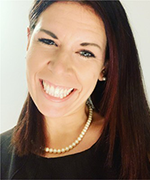 University of Saskatchewan College of Law
University of Saskatchewan College of Law
Saskatoon, Saskatchewan
Canada
Bio:
Brea Lowenberger, BA, JD, LLM, is Saskatchewan's first Access to Justice Coordinator; Cofounder/Director of CREATE Justice, an action-oriented access to justice research lab at the University of Saskatchewan (U of S), Canada, that is working on transforming legal and justice services and the removal of systemic barriers to justice; and a sessional lecturer for the award-winning Dean’s Forum on Access to Justice and Dispute Resolution course at the U of S.
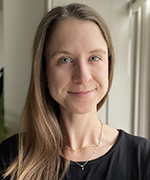 Wesleyan University / American Bar Foundation
Wesleyan University / American Bar Foundation
Middletown, Connecticut
USA
Bio:
Alyx Mark is Assistant Professor of Government at Wesleyan University and an Affiliated Scholar of the American Bar Foundation. She conducts research on institutional influences on legal elites and access to justice. Her research has received the support of the American Association for University Women, the National Science Foundation, and the Pew Charitable Trusts. Her collaborative work appears in the Columbia Law Review, Law and Society Review, Legislative Studies Quarterly, and Political Research Quarterly, among other outlets. She received her Ph.D. in Political Science from The George Washington University in 2015.
Pandemic Policymaking in State Supreme Courts: Implications for the Administration of Civil Justice
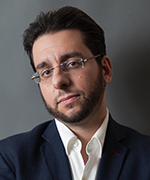 Texas A&M University
Texas A&M University
Fort Worth, Texas
USA
Bio:
Milan Markovic is a Professor of Law, Presidential Impact Fellow, and a Co-Convener of the Program in law and Social Science at Texas A&M University School of Law. Professor Markovic’s research focuses on the duties of lawyers and judges in transitional contexts and examines the future of the legal profession. Professor Markovic is widely recognized for his work on the use of technology in the legal profession, including in access to justice initiatives, and in relation to the potential for technological job displacement. Prior to joining Texas A&M, Professor Markovic practiced law in New York City with Sidley Austin LLP and Baker Hostetler LLP and clerked for the Appeals Chamber of the International Criminal Court.
Generative AI and Everyday Legal Problems
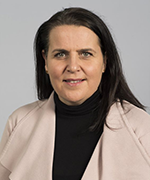 Magistrates' Court of Victoria
Magistrates' Court of Victoria
Melbourne, Victoria
Australia
Bio:
Melissa Martino is the Executive Director, People and Innovation at the Magistrates' Court of Victoria (MCV). Having held multiple senior leadership and executive positions in the Victorian public service, Melissa understands what it means to lead organisations through large scale change and transformation. She aims to embed a culture of excellence and continuous improvement, leveraging off technology to drive efficiency, innovation and people-centric justice to enable a future-ready court.
Transformative Public Servicing Courts Reform (MCV Service Centre)
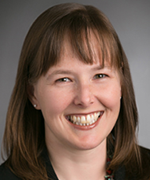 Wayne State University
Wayne State University
Detroit, MI
USA
Bio:
Kirsten Matoy Carlson is a Faculty Scholar in the ABF/JPB Access to Justice Scholars Program, a visiting professor of law at the University of Michigan, and a professor of Law at Wayne State University. She is a Marilyn Williamson Endowed Distinguished Faculty Fellow in the Humanities Center at Wayne State University for 2023-2024. Her interdisciplinary, empirical research investigates access to justice issues, including legal mobilization and law reform strategies used by Native peoples to reform law and policy effectively. Her work seeks to elevate Native voices in their quest for justice within the legal system. It has been funded by the National Science Foundation and the Levin Center at Wayne Law.
Beyond Client Outcomes: Measuring the Impact of Legal Services in Native Communities
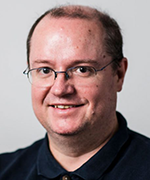 Victoria Law Foundation
Victoria Law Foundation
Melbourne, Victoria,
Australia
Bio:
Dr. Hugh McDonald joined Victoria Law Foundation in 2019 as Principal Researcher, having previously worked at the Law and Justice Foundation of NSW where he was involved in several landmark NSW and Australian access to justice and legal need studies. Throughout his career, Hugh has worked closely with legal aid commissions, community legal centres and federal and state and governments, giving him a deep understanding of legal institutions and access to justice and legal need issues throughout Australia. Hugh led Victoria Law Foundation's project to map the use and utility of Victoria's civil justice data and currently works on the Public Understanding of Law Survey. Other recent work includes collaboration on a study of pricing practice and legal costs, and survey of the Victorian community legal centre workforce.
Presentations:
Everyday Problems and Legal Need: First Findings from the Public Understanding of Law Survey
Mapping the Use and Utility of Victoria's Civil Justice Data
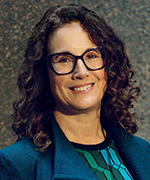 Victorian Legal Services
Victorian Legal Services
Melbourne, Victoria
Australia
Bio:
Fiona was appointed Victorian Legal Services Commissioner and CEO of the Victorian Legal Services Board in January 2018. She was reappointed to the role for a second five-year term on 8 January 2023. Prior to her appointment she was the CEO of Justice Connect, a leading not-for-profit organisation that provides free legal assistance to individuals and organisations by leveraging the pro bono skills of the private legal profession. Fiona has also held a range of senior roles at World Vision Australia, including that of General Counsel. Before joining World Vision, she worked at Clayton Utz, including as Special Counsel. Fiona has an LLB from the University of New South Wales and holds LLMs from both New York University and the University of Melbourne. She has also studied at both Harvard and Stanford Business Schools in the USA.
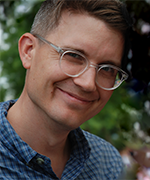 University of Oklahoma College of Law
University of Oklahoma College of Law
Norman, Oklahoma
USA
Bio:
Professor Roger Michalski teaches courses on civil procedure, complex litigation, conflict of laws, and international litigation and arbitration. He is the author of a variety of empirical and doctrinal articles on pro se litigation, jurisdiction, sovereignty, conflict of laws and abortion access, and multi-district litigation.
Partial Pro Se
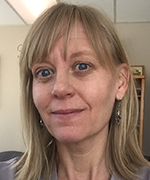 Alaska Legal Services Corporation
Alaska Legal Services Corporation
Anchorage, Alaska
USA
Bio:
Nikole Nelson is the Executive Director of Alaska Legal Services Corporation, Alaska’s only statewide provider of free civil legal assistance to low-income Alaskans. Nikole’s legal career has focused on systemic advocacy to improve access to justice for low-income and marginalized Alaskans, including serving as a member of the Alaska Supreme Court Advisory Committee on Access to Civil Justice, the Alaska Bar Association’s Pro Bono Services Committee, the American Bar Association Standing Committee on Civil Legal Aid and Indigent Defense, a Working Group Co-Chair of the Legal Services Corporation's Rural Access to Justice Taskforce and the Steering Committee of the Native Association of Indian Legal Services.
Presentation:
Bridging the Rural Justice Gap: Innovating & Scaling Up Access to Justice in Alaska
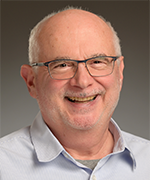 Fordham University School of Law
Fordham University School of Law
New York, New York
USA
Bio:
Russ Pearce, the Edward & Marilyn Bellet Chair in Legal Ethics, Morality & Religion is the co-author of Subversive Legal Education: Reformist Steps Toward Abolitionist Visions, 90 Fordham L. Rev. 2089 (2022) (with Christina John, Aundray Jermaine Archer, Sarah Medina Camiscoli, Aron Pines, Maryam Salmanova, and Vira Tarnavska) and Legal Education and Technology: The Potential to Democratize Legal Knowledge and Power, 10 Latin American L. Rev. 63 (2023) (with Hema Lochan).
Training, Supporting, and Bolstering Subversive Lawyers and Lawyering
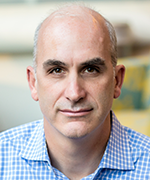 World Bank
World Bank
Vienna, Vienna
Austria
Bio:
Paul Prettitore is a Senior Specialist at the World Bank based in Vienna, Austria. Since joining the World Bank in 2004 he has managed programs on access to justice, anti-corruption, governance and land administration. His research has focused primarily on access to justice and poverty as well as land conflict. Currently he is managing the Access to Justice and Technology research program in cooperation with the Government of Korea. Prior to joining the Bank Paul worked on human rights and property issues in Bosnia and Herzegovina. He also provided pro bono as Guardian at litem at the DC Superior Court for eight years.
Justice Data and and Access to Justice from the Development Perspective
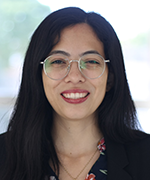 Humanistic Laywer in Brazil and Master's Student at Soka University
Humanistic Laywer in Brazil and Master's Student at Soka University
Hachioji, Tokyo
Japan
Bio:
Amanda Victória is a Humanistic Lawyer in Brazil and Master's student in International Peace Studies at Soka University Japan, focused on the Women's Access to Justice area. Graduated in Law in Brazil, she also has 4 specializations in the areas of Women's Law, Constitutional Law, Civil/Civil Procedural Law, and Consumer Law. In addition to several relevant publications, Amanda Victória has worked for years as a professor of law and of the Portuguese Bar Examination, and her experiences include a job at the United Nations as a volunteer to implement the 2030 Agenda in the Brazilian justice system, in the Public Defender's Office, in the Public Prosecutor's Office, and also several NGOs in favor of the legal protection of women and girls.
Women's Access to Justice in the 21st Century: A Look at the Impact of Gender, Race and Class in Brazil
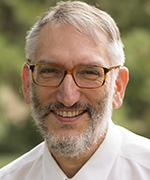 Temple University, Beasley School of Law
Temple University, Beasley School of Law
Philadelphia, Pennsylvania
USA
Bio:
Spencer Rand is a Clinical Professor of Law since 2000 at Temple University’s Beasley School of Law. He teaches Poverty Law and a clinic in which students travel to medical and social service centers in North Philadelphia to represent clients in disability hearings and in simple estate planning. He has been a legal services attorney, a solo practitioner, and executive director of a pro bono agency. His last law review article compares teaching competencies in several types of professional schools and proposes a competency-based model for teaching students to lawyer with a social justice lens throughout the law school curriculum. He has an AB from the University of Chicago and a JD and MSSA (social work) from Case Western Reserve University.
At Law Schools, Must Access to Justice Be Only for Popular Clients and Causes? Should It Be?
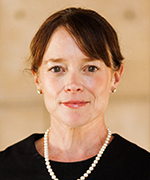 Stanford Law School
Stanford Law School
Stanford, California
USA
Bio:
Lucy Ricca is the Executive Director of the Deborah L. Rhode Center on the Legal Profession. Before starting this role, Ricca was the Director of Policy and Programs for the Center and served as the Executive Director from 2013-2018. Ricca is a national expert in efforts to reform regulation of the legal profession to increase innovation, market diversification, and access to justice. She served as the first Executive Director of the Utah Office of Legal Services Innovation, a new regulator of legal services launched by the Utah Supreme Court. She is a member of the Board of Advisors of the Institute for the Advancement of the American Legal System (“IAALS”). Ricca has written on the regulation of the profession, the changing practice of law, and diversity in the profession.
Presentation:
Exploring New Data from IAALS’ Evaluation of Utah’s Regulatory Sandbox
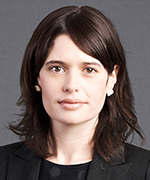 Stateless Legal Clinic, Melbourne Law School, University of Melbourne
Stateless Legal Clinic, Melbourne Law School, University of Melbourne
Melbourne, Victoria
Australia
Bio:
Katie Robertson is a lawyer and Director of the Stateless Legal Clinic at Melbourne Law School, which she founded in 2019. She is proud to lead the Clinic’s work in assisting stateless children to obtain Australian citizenship. Katie brings over 10 years practical legal experience to her role at the Melbourne Law School in human rights, public interest litigation and the community legal sector both in Australia and internationally. Katie is also co-chair of the Stateless Children Australia Network, a network aimed at developing knowledge regarding stateless children in Australia and increasing pathways to legal assistance.
Presentation:
Innovative Responses to Unmet Legal Need - The Australian Stateless Legal Clinic
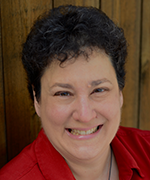 American Bar Association
American Bar Association
Chicago, Illinois
USA
Bio:
Ellyn S. Rosen is the Regulation and Global Initiatives Counsel of the American Bar Association Center for Professional Responsibility where she advises the ABA Standing Committee on Professional Regulation. Ms. Rosen was Counsel to the ABA Commission on Ethics 20/20 (2009-2013) and advised the ABA Commission on the Future of Legal Services on ethics and regulatory issues. She works closely with the ABA Center for Innovation and Standing Committee on International Trade in Legal Services on professional regulatory matters. She liaises with the Conference of Chief Justices, National Organization of Bar Counsel, and the Association of Professional Responsibility Lawyers. She speaks frequently at international, state, and local bar programs regarding legal ethics and professional regulation.
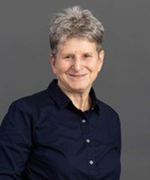 Georgetown Law Center
Georgetown Law Center
Washington, DC
USA
Bio:
Tanina Rostain is the Agnes Williams Sesquicentennial Professor of Justice Innovation at Georgetown Law Center. Her scholarship focuses on access to justice, the American legal profession, and legal ethics. Current projects explore innovative approaches to improving the transparency, equity, and accessibility of the civil justice system, including through the use of digital technologies, non-lawyer service delivery models, and court modernization. At Georgetown, Porofessor Rostain launched the Justice Lab, a research center dedicated to investigating new modalities to address people’s everyday justice problems. Professor Rostain co-leads the Georgetown Civil Justice Data Commons, a secure court data repository created to facilitate research on evictions and debt collection cases. Professor Rostain’s earlier academic work explored the ethical challenges that arise in corporate and tax practice and the organizational factors that lead to professional misconduct. In 2014, she published Confidence Games: Lawyers, Accountants, and the Tax Shelter Industry (co-authored with Professor Milton C. Regan Jr.), which examined the role of tax professionals in the rise of the tax shelter industry at the end of the 20th Century.
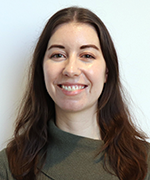 Victoria Law Foundation
Victoria Law Foundation
Melbourne, Victoria
Australia
Bio:
Dr. Georgina Rychner joined Victoria Law Foundation in 2023 as Senior Researcher, having previously worked at several leading Australian universities and the Victorian Parliamentary Budget Office. Having worked across the disciplines of history and criminology, she is an interdisciplinary, mixed methods scholar whose research has explored capital punishment, women’s criminalization and public understandings of justice. In her work at Victorian Law Foundation Georgina is currently researching unmet legal need and building upon the findings from the Public Understanding of Law Survey. She is also working closely with community legal centers to investigate the utility of data in the legal assistance sector, and its integral role in achieving people-centered justice.
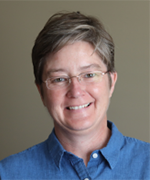 Arizona State University / American Bar Foundation
Arizona State University / American Bar Foundation
Tempe, Arizona
USA
Bio:
Rebecca L. Sandefur is Professor and Director of the School of Social and Family Dynamics at Arizona State University. She investigates access to civil justice from every angle -- from how legal services are delivered and consumed, to how civil legal aid is organized around the nation, to the role of pro bono, to the relative efficacy of lawyers, nonlawyers and digital tools as advisers and representatives, to how ordinary people think about their justice problems and try to resolve them. In addition to her appointment at ASU, Sandefur is Faculty Fellow at the American Bar Foundation, where she founded and leads the Access to Justice Research Initiative.
Presentation:
Civil Justice Futures: A Framework for Empowering and Expanding Community Justice Workers in the United States
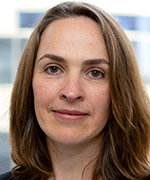 Victoria Legal Aid
Victoria Legal Aid
Melbourne, Victoria
Australia
Bio:
Melanie Schleiger is a discrimination and human rights lawyer with over 15 years of experience. Melanie leads Victoria Legal Aid’s specialist discrimination law service, the Equality Law Program (ELP), which represents people with complaints of discrimination and sexual harassment and actively campaigns for a better systemic response to these issues. In 2019 Melanie and the ELP established Power to Prevent, a coalition of over 80 organisations in the legal, health, community, family violence, business and union sectors, advocating for reforms to prevent and address sexual harassment.
Melanie holds a Master of Laws and has published numerous articles on human rights, anti-discrimination and sexual harassment law.
Presentation:Power to Prevent: A Collaborative Approach to Sexual Harassment Services and Reform in Australia
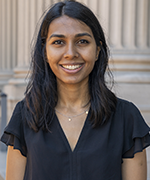 Columbia Law School
Columbia Law School
New York, New York
USA
Bio:
Stuti Shah is currently a doctoral candidate at Columbia Law School. Her dissertation thesis focuses on re-imagining crime and punishment in India from a subaltern and feminist lens. She aims to engage a critical re-thinking of legal and penal institutions that harm people and communities, especially people from socio-economically disempowered communities.
Beyond the Confines of Carcerality: Re-imagining Justice in Sexual Violence Cases
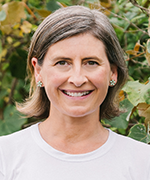 Columbia Law School
Columbia Law School
New York, New York
USA
Bio:
Colleen F. Shanahan is Clinical Professor of Law, Director of the Community Advocacy Lab, and Vice Dean for Experiential Education at Columbia Law School. She is an expert in lawyerless courts, the state civil courts where millions of Americans bring their problems each year. Shanahan’s award-winning scholarship has addressed empirical questions of the role of judges and nonlawyer advocates in lawyerless courts as well as theoretical questions regarding the structures and procedures of these courts. Shanahan’s nationally recognized clinic works with community organizations to reform the civil and criminal legal systems, including recent advocacy related to public housing conditions, fines and fees, debt collection, and the foster care system.
Presentation:
Lawyerless Law Development
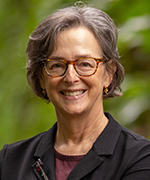 Northwestern Pritzker School of Law
Northwestern Pritzker School of Law
Chicago, Illinois
USA
Bio:
Carole Silver is Professor of Global Law & Practice Emerita at Northwestern Pritzker School of Law. Her research explores issues of access and inequality, among other things, in legal education and the legal profession, including in the global context. Prior to (re)joining Northwestern, she was Professor of Law at Indiana University Maurer School of Law and Director of the Law School Survey of Student Engagement, and Executive Director of the Center for the Study of the Legal Profession and Visiting Professor of Law at Georgetown University Law Center. She teaches a course on law graduates' careers.
Training, Supporting, and Bolstering Subversive Lawyers and Lawyering
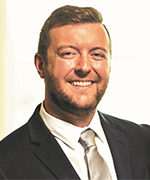 Gonzaga University School of Law
Gonzaga University School of Law
Spokane, Washington
USA
Bio:
Drew Simshaw is an Assistant Professor at the Gonzaga University School of Law, where he researches emerging legal technologies and their intersection with legal ethics and access to justice. His article titled "Access to AI Justice: Avoiding an Inequitable Two-Tiered System of Legal Services" was recently published in the Yale Journal of Law and Technology, and his article titled "Toward National Regulation of Legal Technology: A Path Forward for Access to Justice" is forthcoming in the Fordham Law Review. Before joining the Gonzaga Law faculty, Prof. Simshaw taught at the Georgetown University Law Center as a Visiting Associate Professor of Law, Legal Practice. Prof. Simshaw is a member of the Washington State Practice of Law Board.
Globally-Informed Regulation of Access-to-Justice Oriented Legal Technology
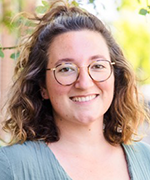 Amsterdam Law Hub
Amsterdam Law Hub
Amsterdam, Noord Holland
Nederland
Bio:
Frances Singleton is a legal innovation specialist & entrepreneur with extensive experience in co-developing new solutions to traditional justice problems. She is currently Head of Research and Innovation at the Amsterdam Law Hub where she runs the incubator, facilitates all research valorisation at the Law Faculty and is responsible for product development in public stakeholder projects like the Boodschappentas (on behalf of the Raad voor Rechtsbijstand). Next to her work at the Hub, she has her own consultancy and has established numerous ventures including the Startup & Stichting Rechtswinkel and Women in Legal Tech. She holds a Bachelor and Master in Jurisprudence (law) from the University of Oxford.
Presentation:
Exchanging Top-down for Bottom-up: A New Approach to Free Legal Advice for Women
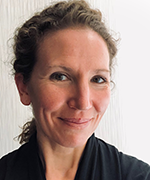 University of Minnesota Medical School, University of Minnesota Law School
University of Minnesota Medical School, University of Minnesota Law School
Duluth, Minnesota
USA
Bio:
Michele Statz is on faculty at the University of Minnesota Medical School and affiliated faculty with the University of Minnesota Law School. Michele is trained as an anthropologist of law and is a leading researcher in rural and Indigenous access to justice. Her work has appeared in Law & Society Review, Harvard Law & Policy Review, and the American Journal of Public Health, among others, and is generously funded by the National Science Foundation. Michele is the co-founder of the Law and Rurality Collaborative Research Network, and she is presently a member of the of the Federal-level Rural Justice Task Force and sits on the National Advisory Council for Frontline Justice.
Presentation:
Access to Justice in Indian Country: Data Neglect and Policy Implications
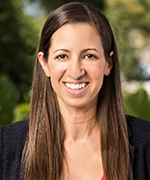 The George Washington University Law School
The George Washington University Law School
Washington, DC
USA
Bio:
Jessica Steinberg is Professor of Law at The George Washington University Law School. She is an expert on civil access to justice, with a focus on empirical research into many dimensions of lawyerless courts including the role of judges, the evolving nature of legal aid, and the efficacy of experimental tribunals. She currently serves as Associate Reporter for the ALI’s Principles of the Law, High-Volume Civil Adjudication. Steinberg practiced as a Legal Aid lawyer and then taught as a clinical professor at GW Law for 12 years handling a wide range of civil and criminal cases. She now teaches civil procedure and criminal procedure. She received her B.A. from Barnard College and her J.D. from Stanford Law School.
The Uptake Puzzle in Expungement of Criminal Records
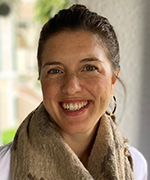 Legal Link
Legal Link
Oakland, California
United States
Bio:
Sacha Steinberger is the Founder and Co-Executive Director of Legal Link. Prior to Legal Link, Sacha litigated worker’s rights and civil rights cases at Lewis, Feinberg, Lee, Renaker & Jackson, P.C. in Oakland, and clerked for Federal District Court Judge Martin J. Jenkins. Prior to law school, Sacha did community, labor, and electoral organizing, and uses her community organizing background to employ the law as a tool to help clients move out of poverty. Sacha received her J.D. from the University of California, Hastings College of the Law, and her B.A. from McGill University in Montreal, Quebec. She is a member of the State Bar of California.
Community Navigators on the Frontlines: Using Legal First Aid to Expand Access to Justice
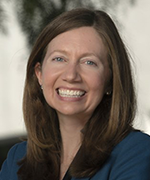 University of California, Irvine School of Law
University of California, Irvine School of Law
Irvine, CA
USA
Bio:
Jane Stoever is a professor at the University of California, Irvine School of Law, where she teaches Family Law and Legal Ethics and directs the UCI Law Domestic Violence Clinic, which represents abuse survivors in civil, criminal, immigration, and policy interventions in abuse. She also directs the interdisciplinary UCI Initiative to End Family Violence and co-chairs the Orange County Domestic Violence Death Review Team. Her research and publications concern legal and societal responses to domestic violence, firearm fatalities, and technology-enabled abuse and include the book The Politicization of Safety. She has advised the Obama and Biden administrations on domestic violence policy and has received national recognition for her work. Professor Stoever previously taught at Georgetown University Law Center, American University Washington College of Law, and Seattle University School of Law; served as a judicial clerk; and worked at legal aid offices and homeless shelters. She received her J.D. from Harvard Law School and her LL.M. from Georgetown University Law Center.
Presentation:
Removing the Bias of Criminal Convictions from Family Law
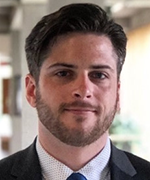 Centre for Forensic Behavioural Science and Justice Studies, University of Saskatchewan
Centre for Forensic Behavioural Science and Justice Studies, University of Saskatchewan
Saskatoon, Saskatchewan
Canada
Bio:
Dr. Bryce Stoliker holds a Ph.D. in Criminology, an M.A. in Sociology, and a B.A. (Hons.) in Psychology and Criminology. He is currently a researcher (Centre for Forensic Behavioural Science and Justice Studies) and lecturer (Department of Sociology) at the University of Saskatchewan. While his main area of research focuses on the mental health of justice-involved individuals (especially those in custody), he is generally interested in investigating and addressing the challenges that people face at various levels of the (criminal) justice system, including access to justice barriers.
A Legal Needs Survey in the Province of Saskatchewan: Perspectives of Lawyers and Legal and Non-Legal Service Providers
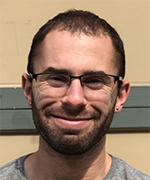 Stanford Law School
Stanford Law School
Palo Alto, California
USA
Bio:
James Stone is a recent graduate of Stanford Law School currently clerking in the Northern District of Illinois. His scholarship is focused primarily on procedural fairness in civil and criminal litigation. More specifically, he writes about seemingly neutral procedural rules that disadvantage certain litigants: examples include a recent piece in the Washington University Law Review concerning double standards in the admissibility of other-acts evidence in excessive force litigation against police officers, as well as a forthcoming piece about how the discovery process fails to provide meaningful access to courts for pro se prison litigants. His work continues to intersect directly with questions of access to justice.
Presentation:
Auto Clubs and the Making of Unauthorized Practice
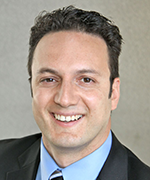 University of California, Irvine School of Law
University of California, Irvine School of Law
Irvine, California
USA
Bio:
Professor Talesh is an interdisciplinary scholar whose work spans law, sociology, and political science. His research interests include the empirical study of law and business organizations, dispute resolution, consumer protection, insurance, and the relationship between law and social inequality. Professor Talesh is considered one of the leading scholars on organizational responses to law and compliance and the relationship between insurance, regulation and inequality.
Talesh’s empirical research addresses the intersection between organizations, risk, and consumer protection laws, focusing on private organizations' responses to and constructions of laws designed to regulate them and the legal cultures of private organizations.
Presentation:Insuring Cyber Insecurity: Insurance Companies as Symbolic Regulators
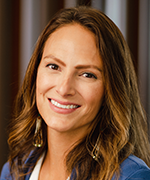 University of California Irvine, School of Law
University of California Irvine, School of Law
Irvine, CA
USA
Bio:
Heather Tanana is a citizen of the Navajo Nation and Visiting Professor at the University of California, Irvine School of Law. She holds a Juris Doctorate from the University of Utah and a Masters in Public Health from Johns Hopkins University. Heather is experienced in state, federal, and tribal courts and clerked for Judge Nuffer at the U.S. District Court for the District of Utah. Heather’s research interests include exploring the overlay between environmental and health policy in Indian Country. Much of her work focuses on tribal water issues, from climate change impacts to Colorado River management.
Water Insecurity in Indian Country: Securing the Human Right to Water for All Americans
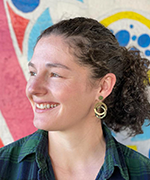 San Francisco State University
San Francisco State University
San Francisco, California
USA
Bio:
Whitney K. Taylor is an assistant professor of political science at San Francisco State University. She received her Ph.D. in Government from Cornell University in 2019. Taylor’s research and teaching interests include comparative constitutionalism, legal mobilization, and legal consciousness, with a focus on the Global South. Her research has been published in Comparative Political Studies, Comparative Politics, Government & Opposition, Human Rights Quarterly, Law & Society Review, Law & Social Inquiry, and Sociological Perspectives. Her book, The Social Constitution: Embedding Social Rights through Legal Mobilization, came out in June 2023 with Cambridge University Press in the Cambridge Studies in Law and Society series.
Presentation:
The Paradoxical Effects of Increased Access to Justice
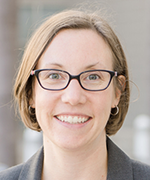 University of California, Irvine School of Law
University of California, Irvine School of Law
Irvine, California
USA
Bio:
Emily S. Taylor Poppe is Professor of Law and Sociology (by courtesy) at UCI Law and is the Faculty Director of the UCI Law IICJ. She is an interdisciplinary empirical scholar whose research is focused on inequalities in access to civil justice. She has investigated variation in both formal and informal access to legal counsel and has also assessed the effect of legal representation on case outcomes. In other scholarship, she has evaluated how legal education, the regulation of the legal profession, legal technology, and institutional design might enhance equality in access to justice. Finally, in a third stream of scholarship, she evaluates estates and trusts law from an access to justice perspective, offering both legal reforms and policy interventions to enhance equality under the laws governing succession.
Presentation:
Perceptions of Legality and Access to Civil Justice
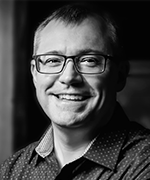 Evaluation and a Regulatory Reform Consultant, IAALS
Evaluation and a Regulatory Reform Consultant, IAALS
O'Fallon, IL
United States
Bio:
James Teufel, MPH, PhD, is a Visiting Scholar of Arizona State University’s Justice Futures Initiative, an evaluator for Georgetown University’s Institute for Technology Law and Policy, an Evaluation and a Regulatory Reform Consultant of IAALS, and Principal of Help Justice, LLC. Dr. Teufel also advises the Delaware Community Legal Aid Society, Inc. (CLASI) on right to representation and nonlawyer representation (i.e., Qualified Tenant Advocates) and is a contributor to the National Center for Medical-Legal Partnership. Dr. Teufel was the founding Director of Data of the Utah Supreme Court’s Office of Legal Services Innovation (OLSI) and is currently the founding Data Analyst of Law Society of Ontario’s (LSO) Access to Innovation (A2I).
Exploring New Data from IAALS’ Evaluation of Utah’s Regulatory Sandbox
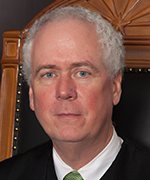 Judge, Arizona Court of Appeals, Division One
Judge, Arizona Court of Appeals, Division One
Phoenix, Arizona
USA
Bio:
Judge, Arizona Court of Appeals, Division One, since 2012, and Chief Judge 2017-2019. Sam chairs the Appellate Judges Education Institute, Inc., Board and chaired the Appellate Judges’ Conference, ABA Judicial Division. He serves on the Uniform Law Commission’s Scope & Program Committee and chairs the Drafting Committee on Revising the Uniform Determination of Death Act. He is an Advisor to the ALI’s RESTATEMENT OF LAW (THIRD) OF TORTS: REMEDIES project. Sam chairs Arizona’s Commission on Access to Justice and co-chairs Arizona’s COVID-19 Continuity of Court Operations During Health Emergency Workgroup. He is frequent speaker & author, former trial judge, partner at Perkins Coie in Phoenix and associate at Arnold & Porter in Washinton,DC.
The Great Digital Accelerator: How Post-Pandemic Court Technology Is Enhancing Access to Justice
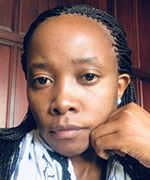 Community Advice Offices South Africa
Community Advice Offices South Africa
Pretoria, Gauteng
South Africa
Bio:
Tshenolo is the Executive Director of CAOSA, the national coordinating body of community advice offices in South Africa. A paralegal by profession, her career began at Legal Aid South Africa from 2009 until 2015 as the Alexandra Justice Centre Civil Unit Paralegal. She then joined ProBono.Org in 2015 as a project manager until 2019 when she joined CAOSA. She is representing South Africa as one of the 5 founding members of the African Centre of Excellence for Access to Justice. She is also a board member for the South African Board for Sheriffs, wherein she chairs the Complaints Sub-committee since June 2021. She is a mother to two boys and currently completing her Bachelors of Business Administration degree.
Innovating Partnerships between the Judiciary, Community-Based Paralegals and Legal Professionals - Effective Access to Justice in South Africa
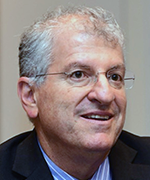 National Center for Access to Justice
National Center for Access to Justice
New York, New York
USA
Bio:
David Udell is the Executive Director of the National Center for Access to Justice, the national nonprofit organization that conducts research and advocacy to bring about a fairer legal system and a more just society. David is responsible for NCAJ's Justice Index, including the Civil Legal Aid Attorney Count, the Fines & Fees Index and, soon, the Consumer Debt Litigation Policy Index. David also guides NCAJ’s Legal Empowerment Project with its initiative to enable people to secure basic legal advice from trained social services professionals. David is the Founder and former Director of the Justice Program of the Brennan Center for Justice. Previously, he served a civil legal aid lawyer. He is a graduate of NYU Law School.
 Eastern Community Legal Centre
Eastern Community Legal Centre
Melbourne, Victoria
Australia
Bio:
Chalita has a proven track record in delivering demonstrable improvement in the quality of service provision, working with organisations on strategic and operational change and improvement initiatives. Driven to deliver quality outcomes with real impact, Chalita commenced in February 2020 with Eastern Community Legal Centre in the Monitoring & Evaluation role having gained extensive experience in Project and Contract Governance across both the private and the public sectors.
Strengthening Intake Quality to improve Access, Triage and Services
 Automona University
Automona University
Santiago
Chile
Bio:
Ms. Velasco earned both a Certificate of Advanced Study in International Law and a Bachelor of Laws degree from Pontificia Universidad Católica de Chile (PUC). Her research has been particularly focused on the intersection of law and mental health, culminating in a thesis on Personality Disorders and their Implications for Criminal Liability, supervised by both the Law and Health schools and an advisor in psychiatry. Ms. Velasco's commitment to justice has been evident throughout her career, including her work as a pro-bono lawyer in the prison system. Her efforts to ensure access to justice for underrepresented groups have been recognized with a PUC scholarship and numerous fellowships, including those from the Fulbright program and the American Association of University Women. Her political and constitutional law expertise has made her an invaluable member of Autonoma's LLB and JD programs, where she teaches Legal Argument, Debate, and Rhetoric courses. Ms. Velasco is thoroughly investigating complex legal cases related to access to justice, including matters concerning slavery, tax poverty, colonialism, intergenerational harms, and indigenous people's rights, cross-border migration, and human rights violations.
Presentation:
Can Victims of Human Rights Violations Obtain Justice by Having Those Violations Acknowledged?
 Liverpool John Moores University
Liverpool John Moores University
Liverpool
UK
Bio:
Michelle is a senior lecturer and solicitor at Liverpool John Moores University in Liverpool, England. Her teaching and research activity is based in LJMU's Legal Advice Centre. She qualified as a solicitor in 2007 and until 2016 practised as a legal aid housing solicitor acting predominantly for tenants in housing and related community care, welfare rights and public law matters. Michelle was awarded a PhD by the University of Liverpool in 2018 for her thesis entitled 'Obligations to provide civil legal aid and the European Convention on Human Rights: a socio-legal study of the Exceptional Case Funding scheme in England and Wales'.
Legal Aid Decision-Making: Determining the Content of Rights to Civil Legal Aid and Access to Rights Protection in Practice
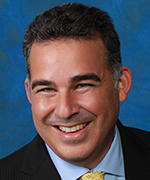 University of Denver Sturm College of Law
University of Denver Sturm College of Law
Denver, Colorado
USA
Bio:
Eli Wald is the Charles W. Delaney Jr. Professor of Law at the University of Denver Sturm College of Law. A legal ethics scholar, Wald has written on topics such as increased lawyer mobility, conflict of interests and attorney disqualification, lawyers' fiduciary duties to clients, the nationalization and globalization of law practice, the challenges facing lawyers representing clients in the emerging marijuana industry and, most recently, in-house lawyers. Professor Wald is a co-author of a leading casebook on the law governing lawyers. His work has appeared in leading journals, cited in ABA ethics opinions and excerpted in legal ethics casebooks.
The “No-Problem” Problem and the Surprising Recipe for Greater Access to Civil Justice
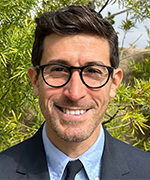 University of California, Irvine School of Law
University of California, Irvine School of Law
Irvine, CA
USA
Bio:
Ari Ezra Waldman is an interdisciplinary sociolegal scholar researching the intersections of law, technology, society, and queer civil rights. His most recent book, Industry Unbound: The Inside Story of Privacy, Data, and Corporate Power, pulls back the curtain on the technology industry's shambolic approach to privacy law and integrating privacy into the design of new products. Professor Waldman has won numerous awards for his scholarship, serves as the Chair of the Privacy Law Scholars Conference, and sits on the Boards of Directors of the Electronic Privacy Information Center and the Cyber Civil Rights Initiative. He earned his PhD in sociology from Columbia University, his JD from Harvard Law School, and his BA from Harvard College.
Presentation:
Gender Legibility Dilemmas
Ombudsman, Montgomery County, Ohio and First Vice President, International Ombudsman Intitutute
Dayton, Ohio
USA
Bio:
Diane Welborn is Ombudsman for Montgomery County, Ohio. The office handles citizen complaints about government agencies and residents of long term-care facilities. Ms. Welborn completed her M.A. from the School of Social Service Administration at the University of Chicago. Previously, she served as Coordinator of Membership for Amnesty International, and member of Dwight Hall of Yale University. She is the author of the “Ombudsman Column” in the Dayton Daily News, author of the Ombudsman Office Weekly Update and the producer of the monthly “Ombudsman Program." Ms. Welborn currently serves as Vice President of the International Ombudsman Institute, former BOD of USOA, and former BOD of the Legal Aid Society of Western Ohio.
A Climate of Fairness
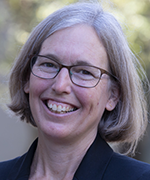 Rutgers Law School
Rutgers Law School
Newark, New Jersey
USA
Bio:
Amy Widman joined Rutgers in 2019 and teaches torts, administrative law, law and inequality, and legal writing. Previously she was an associate professor of law at Northern Illinois University College of Law and deputy director at the National Center for Access to Justice at Fordham Law School.
Professor Widman’s scholarship focuses on how our justice systems can better address inequality through increasing access. She is also the Secretary of the AALS Section on Empirical Study of Legal Education and the Legal Profession and a consultant to the Administrative Conference of the United States, currently developing a report on "Identifying and Reducing Burdens in Administrative Processes."
Presentation:
Access to Justice in Administrative Proceedings
 National Center for State Courts
National Center for State Courts
Middletown, Connecticut
USA
Bio:
As a Principal Court Management Consultant with the National Center for State Courts, Zach is working on national level initiatives to increase access to justice, including working with various court systems to improve the experience of self-represented litigants through process improvement, technological innovation and system change. Zach is the co-creator and a co-host of Tiny Chats—offering free, digestible and creative short-form educational videos on topics about access to justice. He was also instrumental in securing $11 million in funding to support the Eviction Diversion Initiative and in its design, staffs the CCJ/COSCA Policy Committee and has authored numerous reports and resources on access to justice topics.
From the Outside In: Access to Justice In the Courts
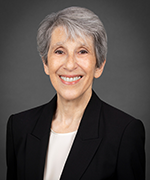 Judicate West
Judicate West
Los Angeles, CA
USA
Bio:
Laurie D. Zelon, currently providing services as an appellate consultant, arbitrator, and private judge at Judicate West, served as a judge on the Los Angeles Superior Court from 2000-2003 and as an associate justice of the California Court of Appeal from 2003-2020. Ms. Zelon is past President of the Los Angeles County Bar Association. She was the founding Chair of the California Commission on Access to Justice, and is currently the co-chair of the national Justice for All advisory committee, a position she has held since its founding. While she was on the Court, she served on, or chaired, a number of committees charged with evaluating barriers to access to justice and making recommendations to address those barriers.
Presentation:
The New Judging: Adapting to Today's Court Users
